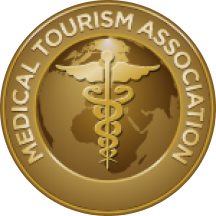Key takeaways:
The price for Dental treatment with sedation in Turkey ranges between £620 - £8 550.
The Dental treatment with sedation offers include:
Factors influencing the cost include the type of sedation used, the complexity of the dental procedure, and the clinic’s location.
| Treatment of caries | from £10 | |
| Curettage | from £80 | |
| Dental treatment with sedation | from £300 | |
| STA computer assisted anaesthesia | from £420 | |
| Aesthetic Composite Filling | from £120 | from £60 |

Viktoriia Ripa, medical editor
This content conforms to the Editorial Policy of Bookimed UK and has been medically reviewed by Viktoria Ripa, a professional dentist. She coordinates care for international patients seeking dental and plastic surgery treatments at Bookimed UK.
Before undergoing dental treatment with sedation in Turkey, patients typically need to have a consultation with an anesthesiologist and the treating dentist. This consultation is crucial to evaluate the patient’s medical history, discuss any allergies or medications, and plan the sedation level accordingly. It’s recommended that patients avoid eating or drinking for several hours before the procedure, as advised by the clinic.
The duration of dental treatment with sedation can vary depending on the complexity of the dental procedure being performed. Simple procedures may take as little as an hour, while more complex interventions, such as multiple implant placements or advanced surgery, could take several hours. The sedation type also affects the duration, as some sedatives wear off quicker than others.
Recovery times can vary, but generally, patients should plan for a few days of downtime to recover from the sedation and any post-operative soreness. Most patients can resume normal activities within a day or two, although this can extend if more extensive surgery was performed.
Post-operative care typically includes taking prescribed medications, such as antibiotics or pain relievers, and adhering to a soft food diet for a few days. Patients are advised to avoid strenuous activities and follow specific oral hygiene practices to ensure proper healing.
Most patients can return to work and resume normal activities within 1-2 days after their dental treatment with sedation. However, this may vary based on the individual’s health, the complexity of the dental procedure, and the type of sedation used.
Typically, at least one follow-up appointment is necessary to ensure proper healing and to address any concerns. Further visits may be required depending on the specific treatments performed and the patient’s response to the surgery.
Yes, patients are often prescribed medications to manage pain and prevent infection. A soft or liquid diet may also be recommended for a few days to avoid putting pressure on the treated areas.
If you experience any severe pain, excessive bleeding, or signs of infection, it is crucial to contact your dentist immediately. For minor symptoms like mild discomfort or swelling, standard pain relief medications and cold compresses can be effective.
The cost of dental treatment with sedation in Turkey is approximately £384. This price includes the consultation with an anesthesiologist and post-operative medications. Please note that accommodation and additional personal expenses are not covered.
Managing pain and discomfort typically involves taking prescribed pain relief medications, applying ice packs to reduce swelling, and resting adequately. It’s also important to follow all post-operative care instructions provided by your dentist.
Patients are generally advised to avoid strenuous activities and heavy lifting for a few days after the procedure. As for travel, it’s recommended to rest for at least a couple of days post-operation before flying, especially if a longer flight is planned.
In most dental treatments, especially those that involve the gums and teeth, there is minimal risk of visible scarring. Any surgical interventions are typically performed in a manner that minimises aesthetic impact.





Bookimed is an international medical tourism platform founded in 2014. We are made of people and for people — and that’s our core value. We cooperate with simply the best doctors & clinics and work hard every day to make people healthier and happier. Over 800,000 patients used the platform so far. Additionally to our primary activities, we collaborate with charity projects and create supportive communities. Our main office is in Kyiv, Ukraine, still, we’re online 24/7 wherever you are.
The information provided on the website is not a guide to action and should not be construed as medical advice or treatment recommendation, nor should it be considered a substitute for a visit to a doctor.